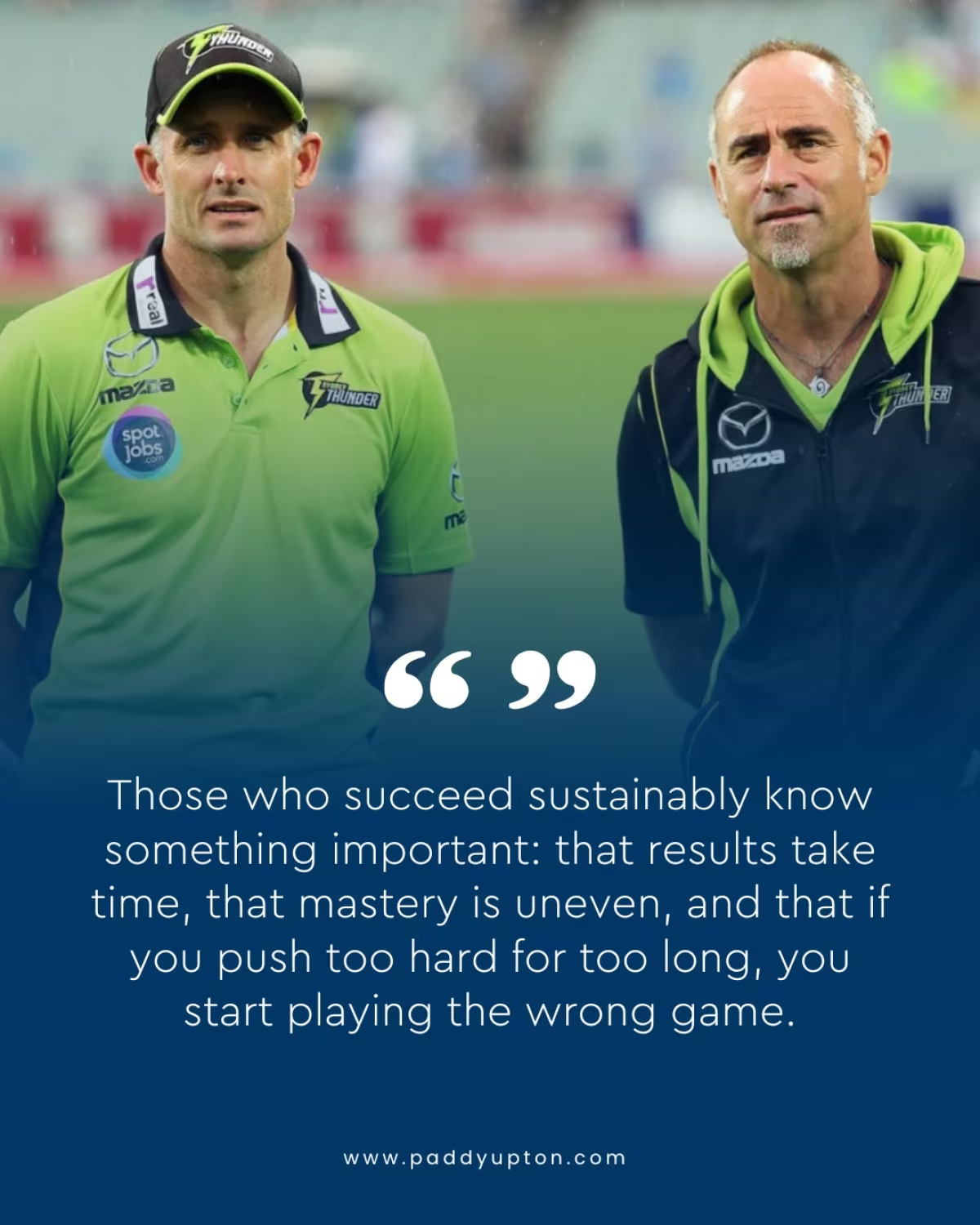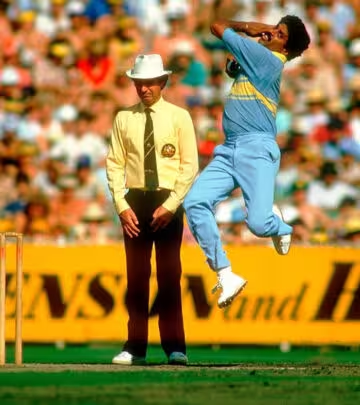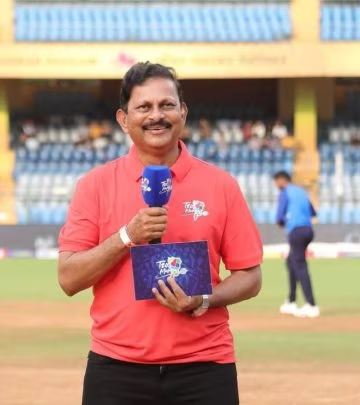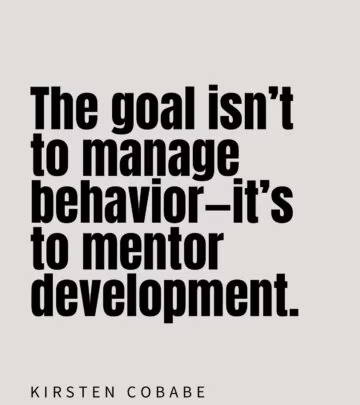Slow And Steady: Success Beyond The Rush
Hussey’s Wisdom Fuels A Journey To Enduring Growth, Defying the Haste For Quick Wins Now.!

Image: Instagram
In a world where the pace of success is often measured in quick wins and instantaneous results, renowned performance coach Paddy Upton reminds us that true progress takes time. In a recent reflective post, Upton shared insights inspired by a conversation with former Australian cricket great Mike Hussey. The message was clear: “Not all pressure is progress.” Upton’s musings encourage young professionals and athletes alike to steer away from the pitfalls of racing against time, and instead, embrace a journey marked by sustainability rather than haste.
The Dichotomy Of Pressure And Progress
Upton’s message underscores a familiar challenge in today’s high-performance culture. Many in sport and business mistake immediate outcomes for meaningful progress. During his conversation with Hussey, Upton noted, “There’s a version of success that’s loud, fast, and driven by urgency — and then there’s the kind that actually lasts.” This observation rings especially true in high-stakes environments where the pressure to perform can overshadow the incremental steps crucial to building long-term mastery.
Upton’s post goes on to explain that while pushing harder and faster might seem like the pathway to success, it often culminates in burnout and exhaustion. The idea that mastery and sustainable performance don’t adhere to a rigid schedule is a reminder that growth is rarely linear. Instead, Upton advocates for training that goes beyond short bursts of performance—instead, it should focus on building resilience and a pace that supports long-term achievement.
Sustainable Success Over Quick Wins
Drawing on his decades of experience both on and off the field, Upton shared, “The best don’t just train for performance. They train for sustainability.” This approach is especially relevant for young talents who might feel compelled to overwork in pursuit of immediate results. The post advises professionals to adopt a mindset where recovery, mental clarity, and strategic rest are not seen as indulgences but as essential components of success.
In a related Instagram update, featuring a compelling image that captures Upton’s reflective demeanor, he further emphasized that achieving longevity in performance means understanding the art of pacing oneself. Upton’s post – which encouraged followers to comment with the word ‘What If’ to receive the full article – serves as a call to action, inviting readers to reconsider the pressures they impose on themselves. Such insights are timely for athletes who, as Upton suggests, are already well-aware of the critical balance between work and recovery. Even in the corporate world, where hustle culture often reigns, taking the time to recharge is proving to be a strategic move rather than a sign of weakness.
Upton’s philosophy is not new to his followers. Over the years, he has championed the idea that rest plays a strategic role in high performance. In earlier posts, Upton pointed out that while high performers are known for their relentless work ethic, they also know the importance of pausing. It’s a philosophy akin to that of elite athletes who understand that a well-planned recovery is as vital as rigorous training sessions. In this light, the conversation with Hussey serves as a gentle reminder that relentless pressure and the quest for rapid success can lead to diminishing returns.
The discussion extends beyond sports. In fields such as business and leadership, Upton’s perspective challenges the prevalent notion that sprinting leads to enduring achievement. Instead, he argues that it is the thoughtful, measured approach—one that emphasizes presence of mind and timely recovery—that ensures consistently high performance. This balance between striving for excellence and knowing when to take a step back appears to be the hallmark of sustainable success.
What stands out in Upton’s commentary is the universality of the message. Whether you are an athlete training for a major tournament or a young professional navigating the fast lanes of a corporate career, the principles remain the same. Upton reminds us that while the allure of immediate success is powerful, the discipline to build resilience and manage pressure over time is what ultimately defines lasting achievement.
By challenging the conventional wisdom that equates harder, faster work with better outcomes, Paddy Upton is urging his audience to adopt a more balanced and sustainable approach. The emphasis on delayed gratification and the importance of recovery provides a counter-narrative to the culture of constant hustle. As Upton puts it, success is about more than short-term gains—it’s about nurturing a performance ethic that endures.
In a broader context, Upton’s insights resonate with a growing recognition in various fields that sustainable progress requires patience, deliberate rest, and consistent effort. His conversation with Mike Hussey, as echoed in his post, serves as a valuable reminder that the true mark of high performance is not just speed, but also the wisdom to pace oneself.
For those interested in exploring these ideas further, Upton invites readers to engage with his full article by commenting with the word “What If” on his social media posts. This interactive approach not only reinforces his message but also builds a community of like-minded individuals who value endurance over ephemeral success.
Ultimately, Upton’s reflective piece offers a fresh perspective on achieving excellence. It champions the idea that while instant results can be tempting, the rewards of sustainable, long-term effort far outweigh the fleeting satisfaction of quick wins. In embracing this philosophy, individuals across various domains are encouraged to prioritize their well-being and invest in the slow, steady journey to mastery.
Read full bio of Srijita De























